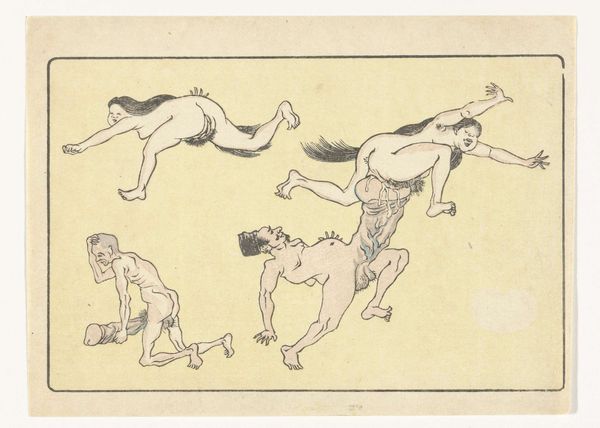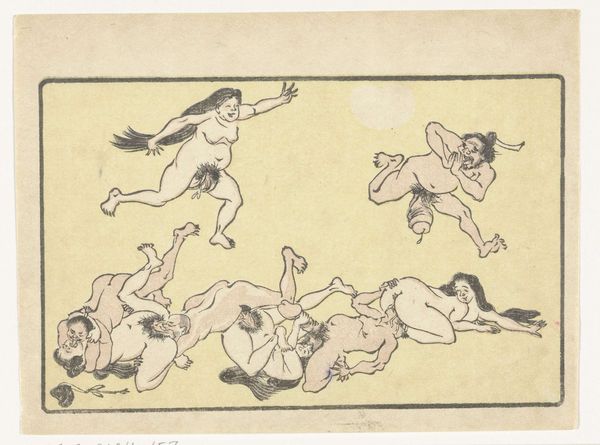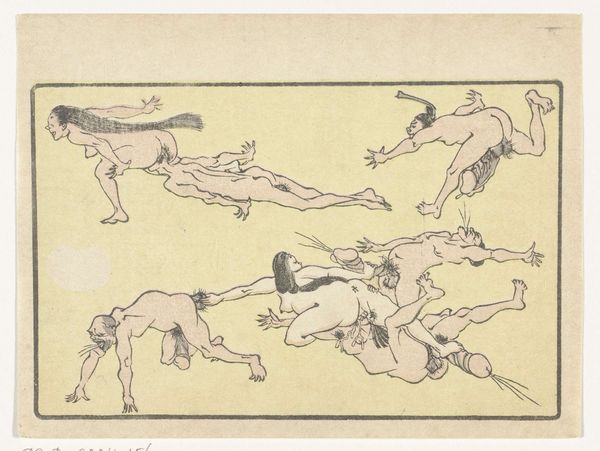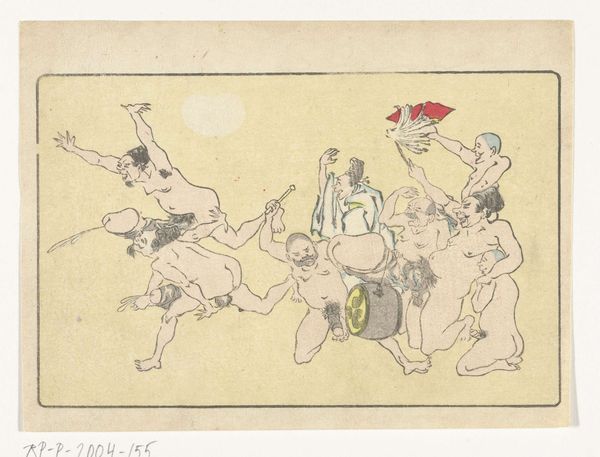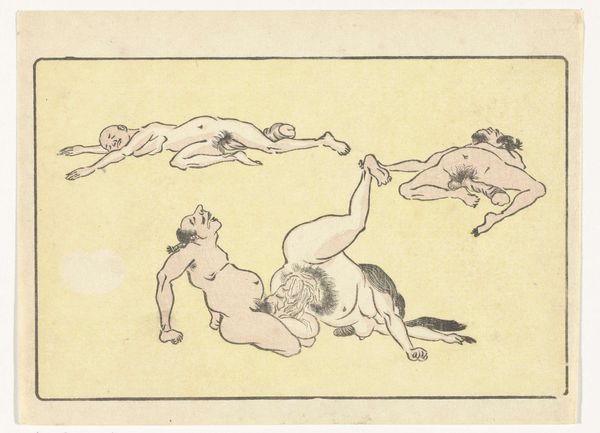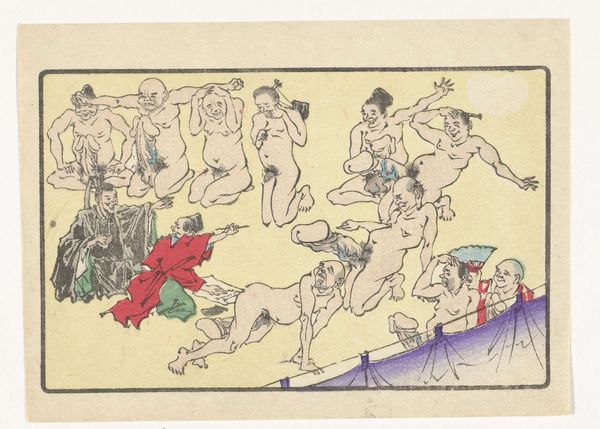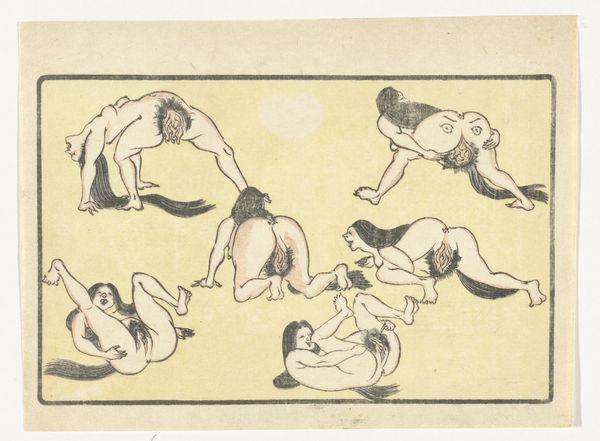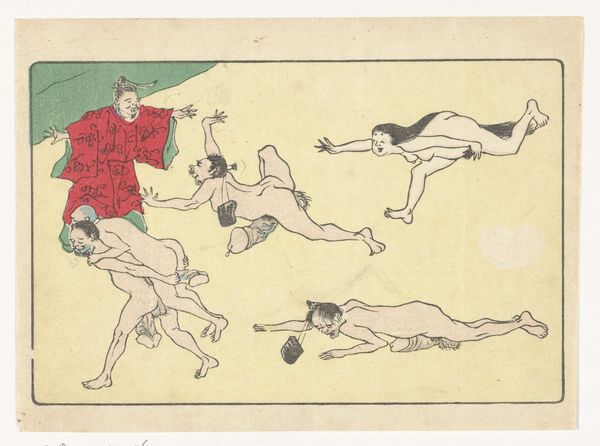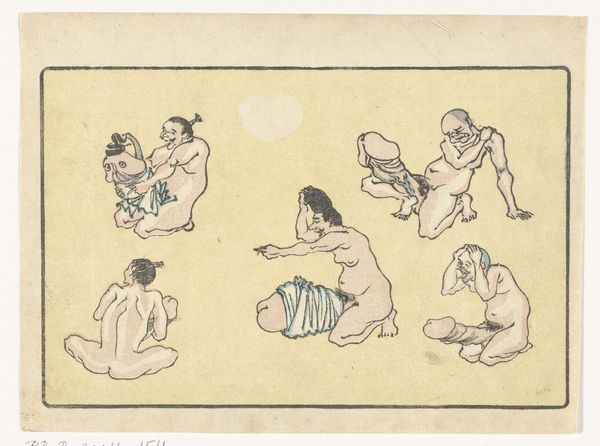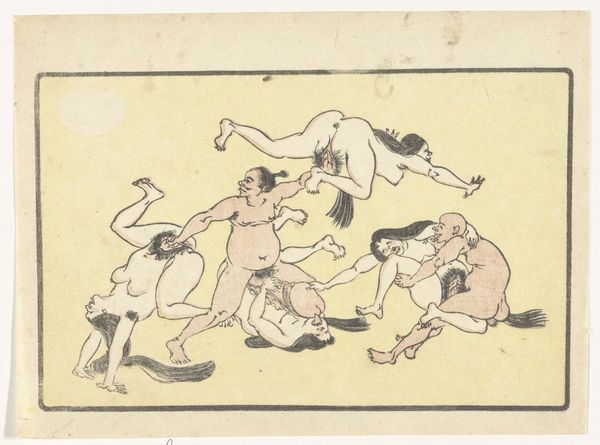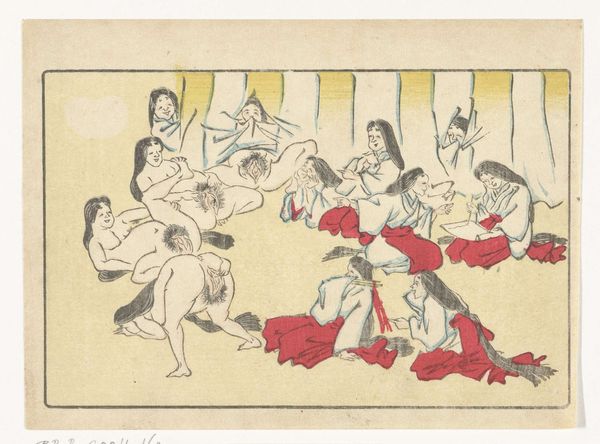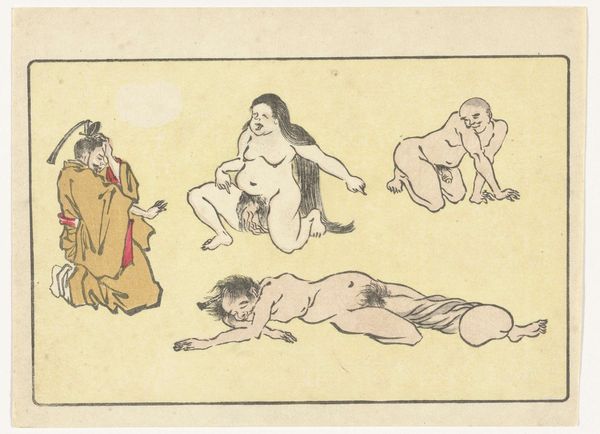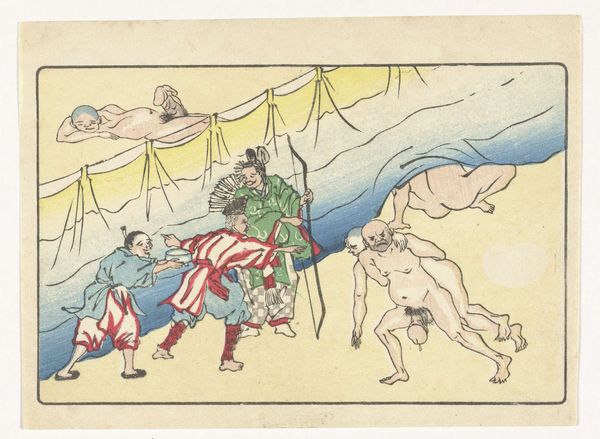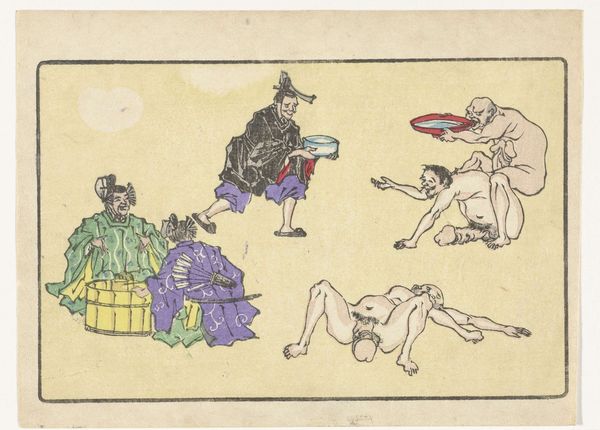
Dimensions: height 129 mm, width 175 mm
Copyright: Rijks Museum: Open Domain
This woodblock print, made by Kawanabe Kyōsai, features a series of resting men in various states of repose. The male figures are presented with a pronounced phallus, an ancient symbol of fertility and potency found across cultures, from the Greek god Priapus to the Shinto fertility festivals of Japan. Consider the recurrence of this motif; it transcends mere biological function, acting as a potent carrier of cultural memory. In ancient Rome, phallic amulets were worn for protection, while in other contexts, the exaggerated male form symbolizes life-force and regeneration. Its presence here reflects a deeper, subconscious connection to primal energies and communal ideals. The symbol, in a psychoanalytic sense, can evoke powerful reactions tied to creation, anxiety, and desire. This woodblock is not just a portrayal of rest, but an engagement with profound emotional undercurrents. The symbol of the phallus, with its ever-shifting and resurfacing symbolism, continues to echo through our collective consciousness, reminding us of the cyclical nature of human experience.
Comments
No comments
Be the first to comment and join the conversation on the ultimate creative platform.
